Directory
- Share
Sridhar Sriram
- Alumni
- United States
- 2019 MPhil Technology Policy
- Hughes Hall
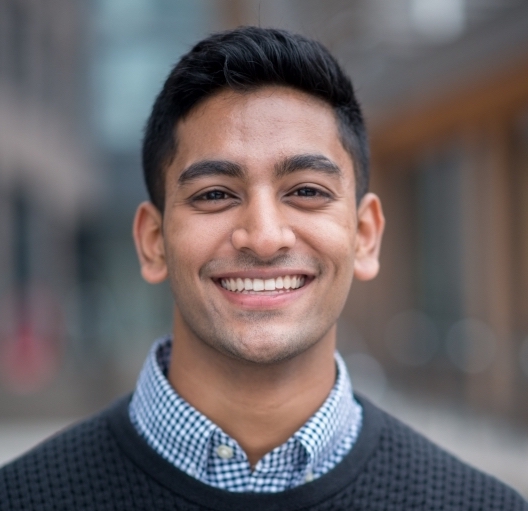
Sridhar Sriram
- Alumni
- United States
- 2019 MPhil Technology Policy
- Hughes Hall
Growing up, I was fortunate to have a family that stressed that my actions were only meaningful if they wielded a positive impact on those around me. Likewise, I also became interested in the way people interacted with each other — a fascination that turned into short stories tucked away in various notebooks. As I entered college, my interest in societal interactions led to a major in Public Policy in an attempt to turn those fiction pieces into policies. Likewise, an unexpected, yet budding, love for technology inspired me to pursue Computer Science to author short stories of impactful, real-world code. Focusing on this intersection of technology and policy, I wanted to leverage technology as an empowering medium to uplift my surrounding communities. However, I quickly discovered that contemporary technologies are riddled with biases that manifest themselves in the algorithms that power these tools. With an MPhil in Technology Policy, I hope to gain an understanding of how best to regulate algorithmic bias without hampering the innovation process, while also exploring the technical frameworks necessary to tackle such biases. In doing so, I hope to combine holistic policies with tangible, technical standards to craft the necessarily diverse, inclusive, and equitable technologies of the future. I am so grateful to join the Gates-Cambridge community and am excited to learn about the world’s stories through peers that are equally committed to improving the lives of others.
Previous Education
Rutgers University Bachelor of Science in Public Policy & Bachelor of Arts in Computer Science, concentration in Urban Informatics 2019
Susanne (Frederica) Stahl
- Alumni
- Austria
- 2011 MPhil Human Evolutionary Studies
- Churchill College
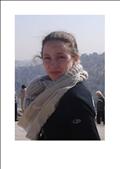
Susanne (Frederica) Stahl
- Alumni
- Austria
- 2011 MPhil Human Evolutionary Studies
- Churchill College
At Harvard University I majored in the History of Science with a focus on Mind, Brain and Behavior. There my thesis analyzed the history of the pineal gland. The neuroendocrine though hidden between your brain hemispheres behind skin and skull, has light sensitive properties, which produced intriguing narratives about its evolution and function. This research as well as volunteer work at BMC’s women’s resource center sparked an interest in the biological and historical relationship between human and environment. How does our environment affect us? How do we become aware of these effects? In New York, I researched physician-industry relationships and dual-loyalties in military medicine at Columbia’s Center on Medicine as a Profession. At Columbia’s Memory Lab I explored metacognition of agency and failure. At the Cambridge, I will study evolutionary studies and research the underpinnings of theory of mind in order to grapple with the biological and evolutionary limits of perspective.
Uta Staiger
- Alumni
- Germany
- 2005 PhD German
- King's College
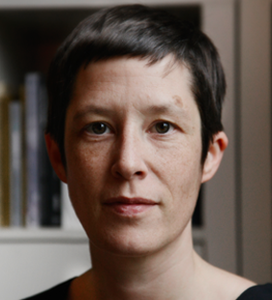
Uta Staiger
- Alumni
- Germany
- 2005 PhD German
- King's College
I direct the UCL European Institute, UCL’s hub for research on Europe, which I co-founded in 2010. As Pro-Vice-Provost (Europe) I also advise the university on strategic partnerships with European universities and provide leadership for UCL's Brexit mitigation. My research sits at the intersection of modern European thought, culture and politics. I’m currently a member of the Russell Group EU Advisory Group and the Advisory Board of the Scottish Council on European Relations, and a Fellow of the Royal Society of the Arts.
Maximilian Stammnitz
- Alumni
- Germany
- 2016 PhD Veterinary Medicine
- Pembroke College

Maximilian Stammnitz
- Alumni
- Germany
- 2016 PhD Veterinary Medicine
- Pembroke College
As a PhD student in the Transmissible Cancer Group of Dr. Elizabeth Murchison (2015 - 2020), I have worked on Transmissible Tasmanian Devil Facial Tumour Disease (DFTD) genetics through computational analyses of large-scale DNA and RNA sequencing data. I am now an EMBO fellow at the Centre for Genomic Regulation, Barcelona.
Tess Stanley
- Scholar-elect
- United States
- 2025 PhD Physiology, Development and Neuroscience
- Churchill College
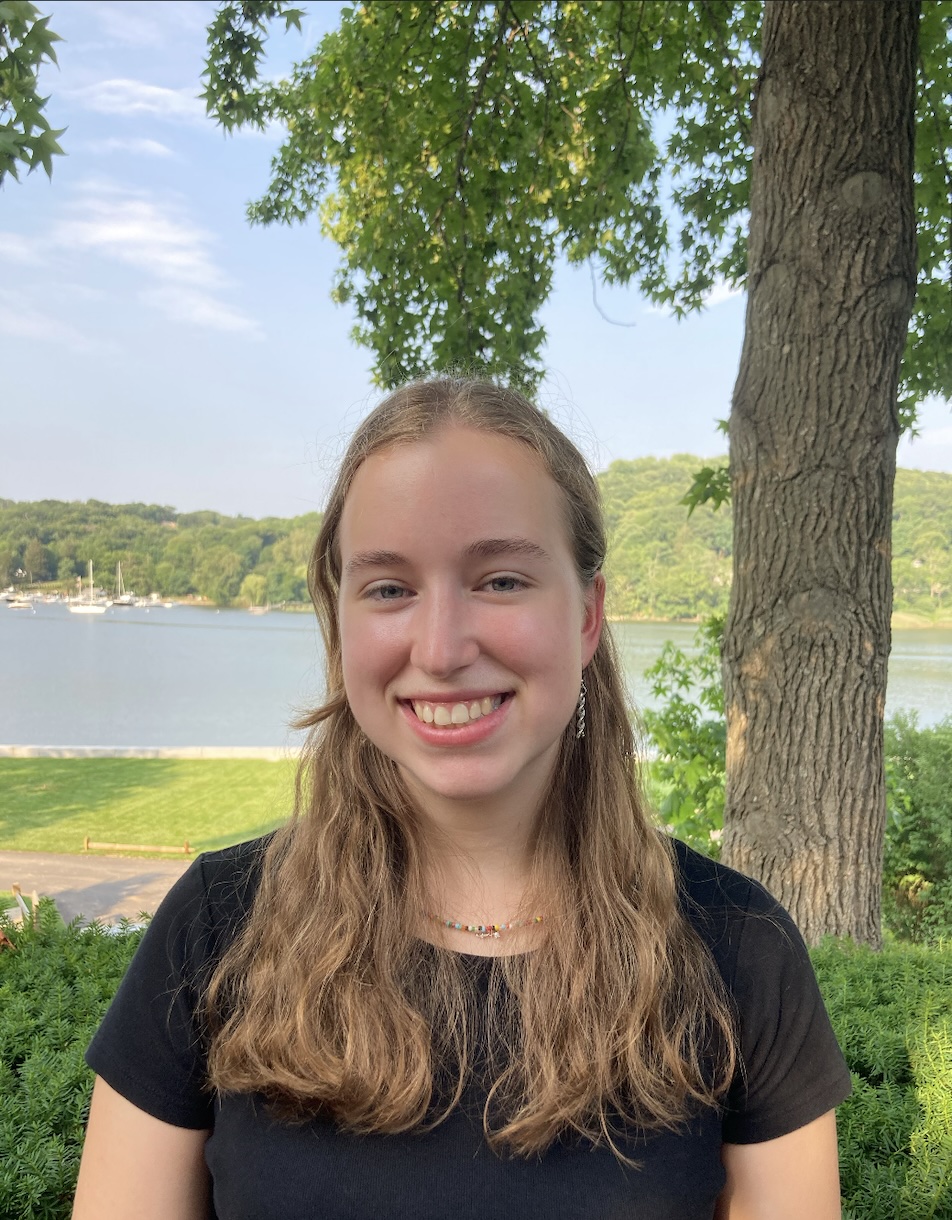
Tess Stanley
- Scholar-elect
- United States
- 2025 PhD Physiology, Development and Neuroscience
- Churchill College
My curiosity for neuroscience grew from my love for mystery, recognizing the similarities between the intricate ‘whodunits’ I adored as a child and the body’s real life mystery: the brain. At Lafayette College, I pursued a dual degree in neuroscience and philosophy, investigating sensory hair cell function and death with Dr. Tamara Stawicki. There, I became interested in how the brain interacts with the sensory environment at the cellular level. My research with Dr. Lucas Cheadle at Cold Spring Harbor Laboratory deepened my interest in the fascinating world of neuron-glial interactions in brain development, plasticity, and disease. During my PhD in Physiology, Development, and Neuroscience with Dr. Elisa Galliano’s lab, I will investigate how microglia drive neuronal plasticity in the olfactory system. Through this work, I aspire to uncover how diverse brain cells work together harmoniously and advance our understanding of glial activation in neurodegenerative diseases such as Parkinson’s disease. Additionally, I look forward to expanding my science accessibility outreach in the greater Cambridge community. I am honored and inspired to join the Gates Cambridge scholarship community.
Previous Education
Lafayette College Neuroscience
Brielle Stark
- Alumni
- United States
- 2012 PhD Clinical Neurosciences
- Gonville and Caius College
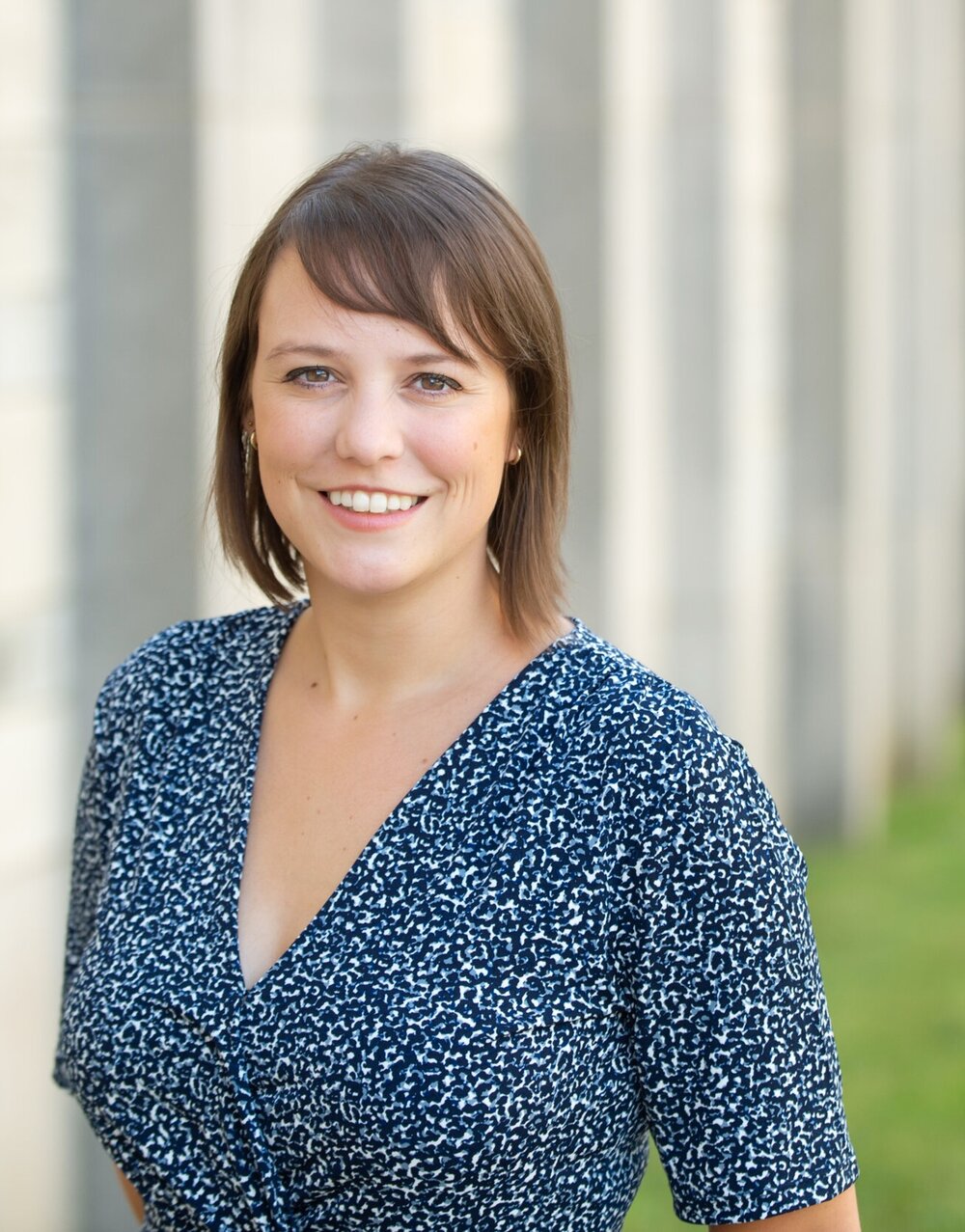
Brielle Stark
- Alumni
- United States
- 2012 PhD Clinical Neurosciences
- Gonville and Caius College
Brielle C. Stark, PhD {she/her/hers}, is a tenured Associate Professor in the Speech, Language and Hearing Sciences Department and Program in Neuroscience faculty at Indiana University. Dr. Stark completed her doctoral research in Clinical Neuroscience at the University of Cambridge (UK) as a Gates Cambridge Trust Scholar. She completed her postdoctoral fellowship at the Center for the Study of Aphasia Recovery. She is a proud alumna of Bryn Mawr College. She was honored with the 2021 IU Faculty Excellence in Mentoring Award from the Center for Women & Technology and the 2021 IU Trustees Teaching Award. She is also a trained Peer Reviewer for IU’s Faculty Academy on Excellence in Teaching. In 2021, she was named one of four Distinguished Aphasia Scholars USA, a national award given by the Tavistock Trust UK. Brie was awarded the Outstanding Junior Faculty Award for 2022-2023 from Indiana University Bloomington. She won a Fulbright Research Award to conduct research on virtual reality for facilitating speech and language post-stroke at the University of Technology Sydney (AUS), for spring 2025.
As of July 2023, Dr. Stark is the PhD Coordinator / Director of Graduate Studies for the Department of Speech, Language and Hearing Sciences at Indiana University.
Previous Education
Bryn Mawr College Psychology, Neural and Behavioral Science 2012
Links
https://sphs.indiana.edu/about/faculty/stark-brielle.html
http://www.neuralresearchlab.com
https://www.linkedin.com/in/brielle-stark-10726516
Jessica Stebbins Bina
- Alumni
- United States
- 2002 MPhil Economic & Social History
- Peterhouse

Jessica Stebbins Bina
- Alumni
- United States
- 2002 MPhil Economic & Social History
- Peterhouse
Previous Education
University of North Florida BA History 2001
Oliver Stegle
- Alumni
- Germany
- 2005 PhD Physics
- St Edmund's College
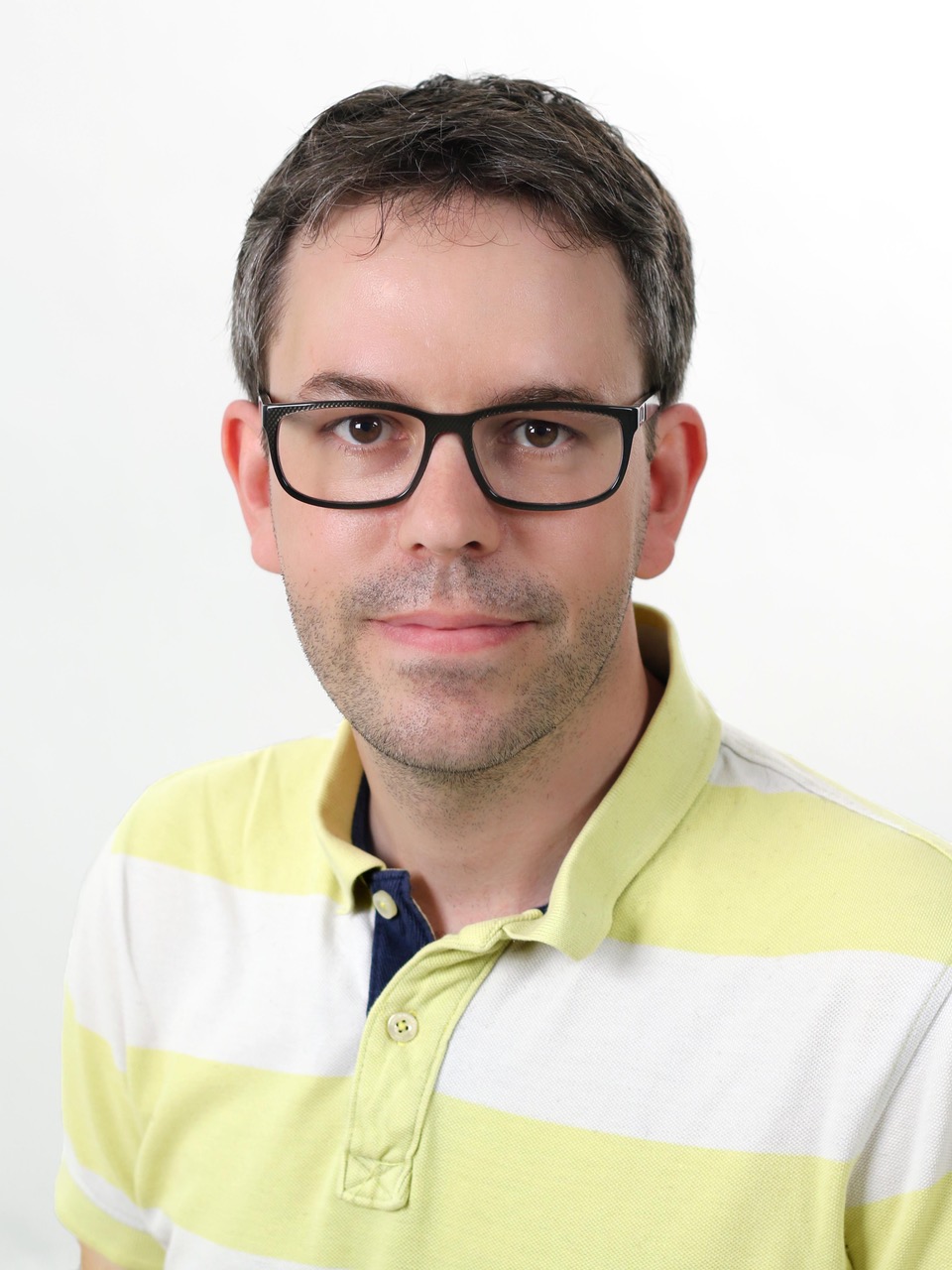
Oliver Stegle
- Alumni
- Germany
- 2005 PhD Physics
- St Edmund's College
I am a scientists working on machine learning approaches to tackle pertinent challenges in the life sciences and health.
Links
https://www.embl.org/groups/stegle
https://www.google.de/url?sa=t&rct=j&q=&esrc=s&source=web&cd=&ved=2ahUKEwinlKjE_4X-AhU4RaQEHThjDhQQFnoECBIQAQ&url=https%3A%2F%2F
Asbjoern Steglich-Petersen
- Alumni
- Denmark
- 2003 PhD Philosophy
- Darwin College

Asbjoern Steglich-Petersen
- Alumni
- Denmark
- 2003 PhD Philosophy
- Darwin College
.
Robin Stein
- Alumni
- United States
- 2002 PhD Chemistry
- Churchill College

Robin Stein
- Alumni
- United States
- 2002 PhD Chemistry
- Churchill College
Previous Education
Michigan State University BS Chemistry 2002
Florian Steinberger
- Alumni
- Germany
- 2004 PhD Philosophy
- Hughes Hall

Florian Steinberger
- Alumni
- Germany
- 2004 PhD Philosophy
- Hughes Hall
Maximilian Sternberg
- Alumni
- Germany
- 2001 MPhil History and Philosophy of Architecture
2002 PhD History & Philosophy of Architecture - Pembroke College
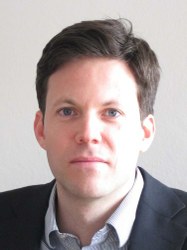
Maximilian Sternberg
- Alumni
- Germany
- 2001 MPhil History and Philosophy of Architecture
2002 PhD History & Philosophy of Architecture - Pembroke College
Maximilian received his PhD in the History and Philosophy of Architecture in 2007 at the Department of Architecture in Cambridge University. Following post-doctoral scholarships in Paris and Rome, he returned to Cambridge as a Research Associate of the ESRC-funded project ‘Conflict in Cities and the Contested State’. He was appointed university lecturer at the Department of Architecture in Cambridge in 2009. Sternberg is a fellow of Pembroke College and deputy director of the Centre of Urban Conflicts Research.
Alicia Stevens
- Alumni
- United States
- 2017 PhD Archaeology
- Jesus College
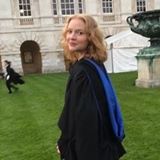
Alicia Stevens
- Alumni
- United States
- 2017 PhD Archaeology
- Jesus College
Dr. Alicia V. Stevens is co-coodinator of the Heritage Pillar of MIT’s Center for Comparative Global Humanities. She is a Gates Cambridge Scholar who holds a DPhil and MPhil from the University of Cambridge, an MSc. from Columbia University, and a BA from the University of Michigan. Her doctorate interrogates cultural heritage amid a context of extreme socio-political uncertainty and transition, with focus on Burma/Myanmar since 1824 and the country’s difficult legacy of colonial and military oppression and civilian revolution. Arguing for transferring the concept of contemporary liminality from political anthropology into critical heritage studies, the doctorate unpacks the ways that cultural heritage, extreme political transition, and social uncertainty interact. Her research interests are in the political uses of culture during periods of liminal crisis, with particular focus on ‘trickster’ uses of violence and conspiracy theories by authoritarian actors and the often tactically ambiguous, even humorous responses that their actions illicit from creative publics – from Myanmar to the United States. She has authored journal articles, book chapters, and is currently turning her thesis into a book (upcoming 2024/5). Prior to Cambridge, Dr. Stevens directed global strategies and programs at Columbia University, the American Museum of Natural History, and the Smithsonian Institution. She is a Fellow of the Royal Geographic Society and the Explorers Club.
Previous Education
Columbia University
University of Cambridge
Links
http://www.linkedin.com/in/dr-alicia-victoria-stevens-93466a17
Daniel Stevens
- Alumni
- United States
- 2016 PhD Theology and Religious Studies
- King's College
Daniel Stevens
- Alumni
- United States
- 2016 PhD Theology and Religious Studies
- King's College
A lifelong Los Angeles native, I am looking forward to the opportunity to study at an institution with so long a history of excellent scholarship. As an undergraduate at UCLA, I fell in love with the language, literature, and linguistics of Ancient Greek. The entire classical world fascinated me, and I enjoyed exploring its mix of cultures and its wide range of both art and philosophical thought. Following undergraduate study, throughout three years of an M.Div. program at The Master’s Seminary, I was able to dig deeply into the times and literature surrounding the New Testament. While there, I focused my studies on linguistic development between Attic and Koine Greek, early Jewish Christianity, and the interpretation of both New Testament and Patristic texts. Building upon this work, in my PhD, I will focus on how the concepts of covenant and promise were used in an early Jewish Christian text to provide a group identity and hope for an audience that had previously faced hardship and displacement from their property and were expecting to soon face more of the same. I am exceedingly excited and grateful for the chance to be a part of the Gates community and the academic community at Cambridge.
Interests: Craft coffee, reading, table top board games.
Previous Education
University of California Los Angeles
The Master's Seminary
Zoe Stewart
- Alumni
- Australia
- 2013 PhD Clinical Biochemistry
- Clare College
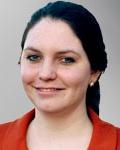
Zoe Stewart
- Alumni
- Australia
- 2013 PhD Clinical Biochemistry
- Clare College
Early in my medical training I developed a keen interest in endocrinology and particularly endocrine disorders in pregnancy. These disorders have far-reaching biopsychosocial effects and interventions can improve the lives of women and their children. My PhD will examine whether the “artificial pancreas” can improve glucose control and clinical outcomes in pregnant women with Type 1 diabetes in real-life at home trials. I am also a passionate advocate of sexual and reproductive health and rights, and am currently a Director of Family Planning Victoria and the Australian Youth Representative and a Regional Council Member for the International Planned Parenthood Federation. In the future, I hope to be a clinician-researcher with an active role in policy and advocacy to help on practical and empirical levels to improve the lives of women and their families.
Sonja Stiebahl
- Alumni
- Germany
- 2020 PhD Psychology
- King's College

Sonja Stiebahl
- Alumni
- Germany
- 2020 PhD Psychology
- King's College
I grew up in Germany and moved to Oxford for my Bachelor's Degree in Experimental Psychology. Throughout my degree I developed a passion for neuroscience and psychiatry and started a research degree in Cambridge in basic and translational neuroscience. During my PhD I want to investigate the cellular processes involved in addiction and hopefully open up new avenues that may lead to the development of treatments. I further hope to take courses in public engagement and health policy and use my knowledge as a researcher to work together with policy makers in the health sector in the future.
Previous Education
University of Cambridge Neuroscience 2020
University of Oxford Experimental Psychology 2019
Daniel Storisteanu
- Alumni
- Canada
- 2012 PhD Medicine
- Clare Hall
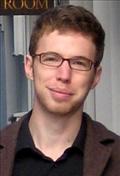
Daniel Storisteanu
- Alumni
- Canada
- 2012 PhD Medicine
- Clare Hall
With a background in environmental biology and after a number of stints in tiger, bat, and marine conservation research with universities and NGOs like the WWF, I’ve changed scope and species and am now starting a PhD in Medical Science. I intend to investigate a novel strategy that certain pathogens may use to manipulate the immune system. Our lab has recently discovered that a disease-causing virus exploits the signals released by our immune cells, causing other cells to be more permissive to viral infection and weaken the immune system’s anti-viral strategies. My research will investigate the mechanisms this virus uses to take advantage of the immune system, and investigate whether they are used by pathogens such as tuberculosis and influenza. The long-term aim of this research is to identify points in the immune system where we may be able to intervene with therapies to treat and prevent these diseases, and to help identify individuals at higher risk of complications.
Kaitlin Stouffer
- Alumni
- United States
- 2013 MPhil Medical Genetics
- St Catharine's College
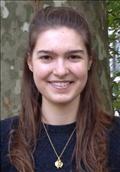
Kaitlin Stouffer
- Alumni
- United States
- 2013 MPhil Medical Genetics
- St Catharine's College
All my life, I've been captivated by the wonders and conundrums of complex diseases. Why do viruses mutate in unpredictable ways? And why would a man mistake his wife for a hat? With a quantitative mind, I longed for mathematical tools I could use to investigate these captivating mysteries and found them in machine learning—dedicated to the discovery of complex computational patterns in a range of applications. At Cambridge, I will have the opportunity to contribute my machine learning background to an ongoing effort to determine the genes involved with pain. Capturing complex relationships among genes and with their environment, machine learning has the potential to discover not just single genes, but how they interact to cause observed symptoms. Ultimately, I hope to pursue an MD/PhD so that as a scientist, I might help further our understanding of complex diseases but as a physician, I might never lose sight of the real patients I’m trying to help.








